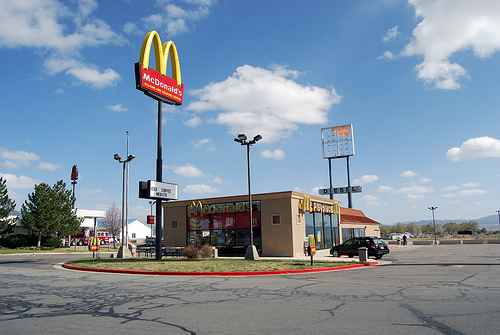I wasn’t surprised when the Associated Press reported last week that Colorado-based Jensen Farms had been fined for housing its workers in unsanitary, unsafe conditions (workers had little choice but to crowd into company-owned “motel” rooms that lacked beds, laundry facilities, and smoke detectors). After all, the huge cantaloupe farm had been found responsible for last fall’s deadly listeria outbreak — a major food safety oversight that killed at least 30 people, made 146 people sick, and soured melon season for farmers around the nation by planting a fear of cantaloupes in the minds of many eaters.
And although the AP story reads, “The fine was not linked to the outbreak,” it’s clear that there are links between food safety and the treatment of workers.
The Denver Post has since reported:
The Food and Drug Administration said its ‘root cause’ probe at the southeastern Colorado packer showed multiple places where normal background levels of listeria likely bloomed into deadly concentrations, from a dump truck to a produce washer designed for potato farms.
In other words, there is evidence that the company cut corners when it came to controlling bacteria, and it’s likely that workers who were left to live in rooms without beds were the product of the same kind of “cost-cutting” measures. They probably weren’t exactly empowered to speak up about the lack of sanitation they undoubtedly witnessed.
We — consciously or unconsciously — expect that the people on the so-called front lines of food production will be invested in creating a product that will, at the very least, not make us deathly ill. Increasingly, that appears not to be the case. In fact, the more I hear about workers in the food system and the challenges they face, the more I realize, that’s probably low on their list of concerns (after avoiding dehydration, heat exhaustion, injury, or getting covered in pesticides).
As food safety attorney Bill Marler pointed out on his website Food Safety News, this is not the first time a major food safety incident has been linked to worker violations. DeCoster Egg Farms — the Iowa mega farm behind the 2010 recall of millions of salmonella-tainted eggs — was also known for mistreating workers.
In the ’90s and early 2000s, DeCoster Egg Farms paid out a total of $3.5 million in fines and settlements associated with health and safety violations, as well as allegations of sexual abuse and harassment. Marler writes: “Then-Labor Secretary Robert Reich said conditions were: ‘As dangerous and oppressive as any sweatshop.’”
In the case of both Jensen and Decoster farms, the danger was foodborne illness. But there’s another, simpler factor that links workers and food safety: sick days.
It goes without saying that sick animals make for an unsafe food system (even if the Supreme Court — which just overturned a law that would require euthanizing downed livestock — doesn’t appear to see it that way). But a shocking number of states still don’t require employers to provide paid sick leave. And if you’re living on the edge of poverty — like many factory workers, grocery store clerks, and fast-food workers — missing a day of work is out of the question.
The cities of San Francisco and Washington, D.C., and the state of Connecticut are the exceptions. This fall, Seattle joined them when city voters passed a ballot measure to provide 150,000 workers paid days off then they’re sick. (Meanwhile, Denver voters rejected a similar effort). Of course, the basic right to stay home when you’re sick — not to mention live in safe housing, take breaks, and stay injury-free — probably doesn’t sound like a big ask to many of us. But the groups campaigning for the Seattle measure knew better than to run a campaign based on human rights alone. A flyer widely circulated before the election by the Seattle Coalition for Healthy Workforce read:
Grocery and restaurant workers are on the front lines of food safety. Yet one in four grocery workers report coming to work sick because they don’t have paid sick days, and 78% of accommodation and food service workers don’t earn paid sick days. [Emphasis theirs.]
Nonetheless, it’s telling — and more than a little depressing — that workers’ safety is often championed less for its own sake than in an effort to safeguard the products that end up in consumer’s homes. I’m not saying it’s not vital to keep our food system safe for eaters, because it is. But the slope of self-interest is steep and slick.
And it’s important to keep in mind that, in the eyes of many huge, poorly run, bottom-line driven operations like Jensen and DeCoster Farms, neither consumers nor workers deserve much respect.





